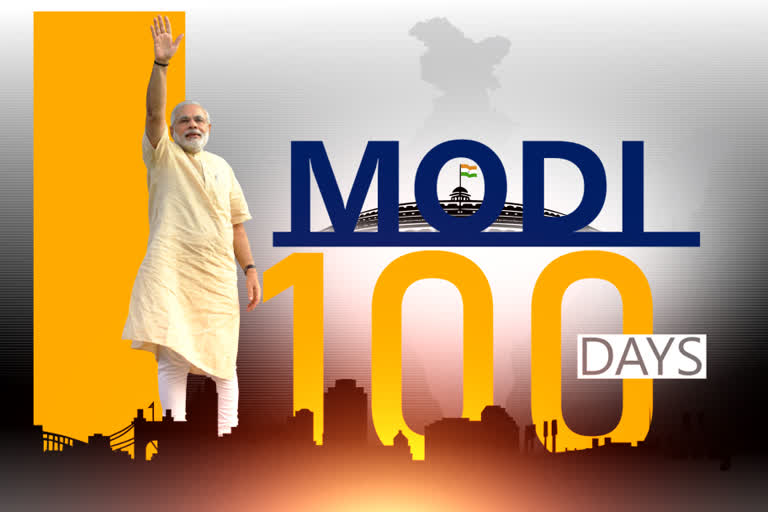New Delhi:When the Modi government stormed back to power in May, the stock market was the first to react. Both the Sensex and Nifty scaled lifetime highs in the expectation that a stable government will soon result in quick fixes for the economy losing steam, but the first Budget came as no less than a setback.
Markets plunged as soon as Finance Minister Nirmala Sitharaman announced the controversial tax surcharge on the Foreign Portfolio Investment (FPIs). Several other measures like amendments to the Companies Act to criminalise breach of corporate social responsibility norms came under sharp criticism from all quarters.
Indian markets witnessed one of the most fierce outflows of foreign funds since the global financial crisis in 2008. It not only erased most of the gains in the indices made post polls, but also the once made since January 1.
The Gross Domestic Product (GDP) fell further from 5.8 when Prime Minister Narendra Modi took oath, to 5 per cent in June quarter of this year, the worse India has seen in over six years. Much was blamed on the external factors like the trade war and recession-like conditions in Europe and US but the centre of it has been the drying private consumption.
Just ahead of release of the GDP numbers, Sitharaman announced the mega-merger of 10 PSU banks into four, where the Punjab National Bank, the Oriental Bank of Commerce and the United Bank to merge become the second-largest PSB, while the Canara Bank and the Syndicate Bank will amalgamate to make the fourth-largest PSU bank entity.
That apart, the Union Bank, the Corporation Bank, and the Andhra Bank were proposed to be merged to become the fifth-largest PSU bank and the Indian Bank and the Allahabad Bank merge to be the seventh-largest.
Foreign brokerage, as well as the domestic ones, said that the bank mergers will see an improvement in economies of scale and efficiency of operations over the medium-long term.
Read more:MSME loans not cost-effective; hurting business: Vinod Lohia
